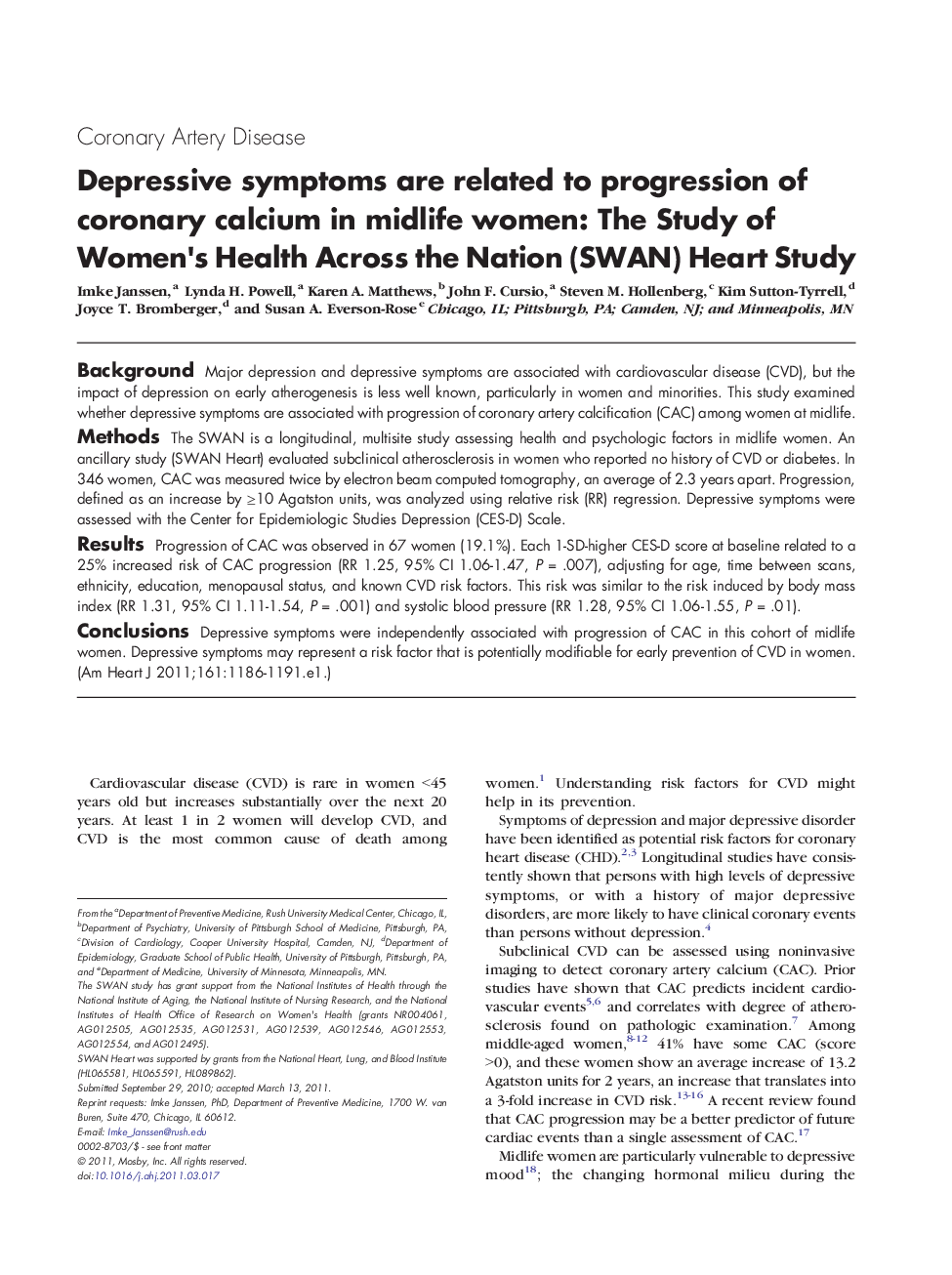| Article ID | Journal | Published Year | Pages | File Type |
|---|---|---|---|---|
| 5927168 | American Heart Journal | 2011 | 7 Pages |
BackgroundMajor depression and depressive symptoms are associated with cardiovascular disease (CVD), but the impact of depression on early atherogenesis is less well known, particularly in women and minorities. This study examined whether depressive symptoms are associated with progression of coronary artery calcification (CAC) among women at midlife.MethodsThe SWAN is a longitudinal, multisite study assessing health and psychologic factors in midlife women. An ancillary study (SWAN Heart) evaluated subclinical atherosclerosis in women who reported no history of CVD or diabetes. In 346 women, CAC was measured twice by electron beam computed tomography, an average of 2.3 years apart. Progression, defined as an increase by â¥10 Agatston units, was analyzed using relative risk (RR) regression. Depressive symptoms were assessed with the Center for Epidemiologic Studies Depression (CES-D) Scale.ResultsProgression of CAC was observed in 67 women (19.1%). Each 1-SD-higher CES-D score at baseline related to a 25% increased risk of CAC progression (RR 1.25, 95% CI 1.06-1.47, P = .007), adjusting for age, time between scans, ethnicity, education, menopausal status, and known CVD risk factors. This risk was similar to the risk induced by body mass index (RR 1.31, 95% CI 1.11-1.54, P = .001) and systolic blood pressure (RR 1.28, 95% CI 1.06-1.55, P = .01).ConclusionsDepressive symptoms were independently associated with progression of CAC in this cohort of midlife women. Depressive symptoms may represent a risk factor that is potentially modifiable for early prevention of CVD in women.
